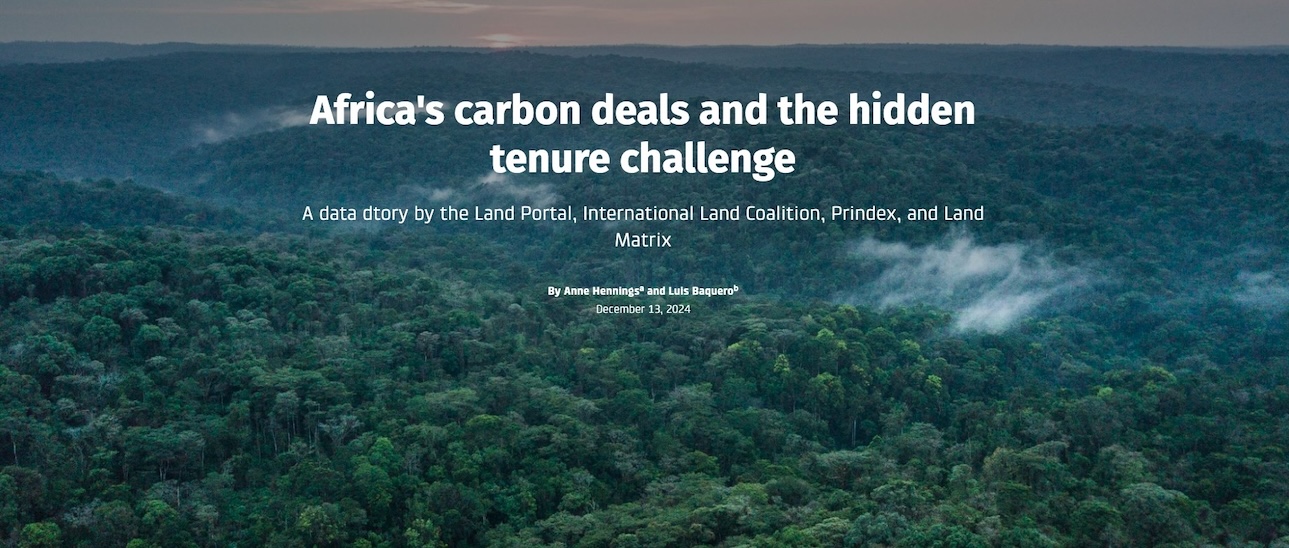Observers marked 2023 as a “make-or-break” year for voluntary carbon markets and a key “inflection point” for their role in addressing climate change and global deforestation. Proponents highlight that forest carbon projects channel much-needed funds towards forest protection and are pivotal to climate change mitigation. However, critics emphasize that carbon deals set incentives for over-crediting. Moreover, carbon offsetting allows the biggest emitters to simply outsource their climate mitigation efforts with potentially adverse impacts for affected communities.
The debate was fueled when several large-scale carbon offset projects were reported in Sub-Saharan Africa just before the UN Climate Change Conference COP 28 took place in Dubai in 2023. The sheer dimensions of the planned projects bring back memories of the last major wave of large-scale land deals in 2011 -- notably, memories of evictions of local communities and Indigenous Peoples, loss of livelihoods and a lack of free, prior and informed consent (FPIC) practices.
This data story explores in detail the consequences of climate change mitigation for land tenure, and vice versa. Zooming into several case studies in East and West Africa, it highlights the dimensions of tenure security and how people-centered, inclusive and effective land governance systems can help manage the influx of carbon offset projects.
View this data story in full screen.
Print/download this data story.
This data story has been developed with the support of the Land Data Partnership, a group effort funded by the European Commission and implemented by the International Land Coalition, the Land Portal Foundation, the Land Matrix Initiative, and Prindex to improve the complementarity of global land data initiatives and to identify opportunities to hold key actors responsible.

